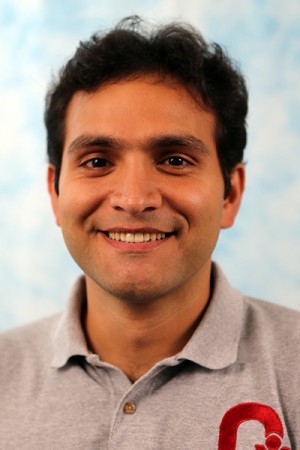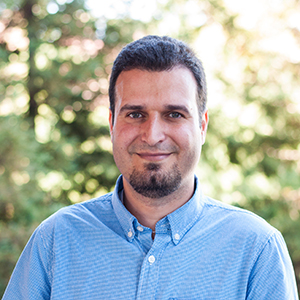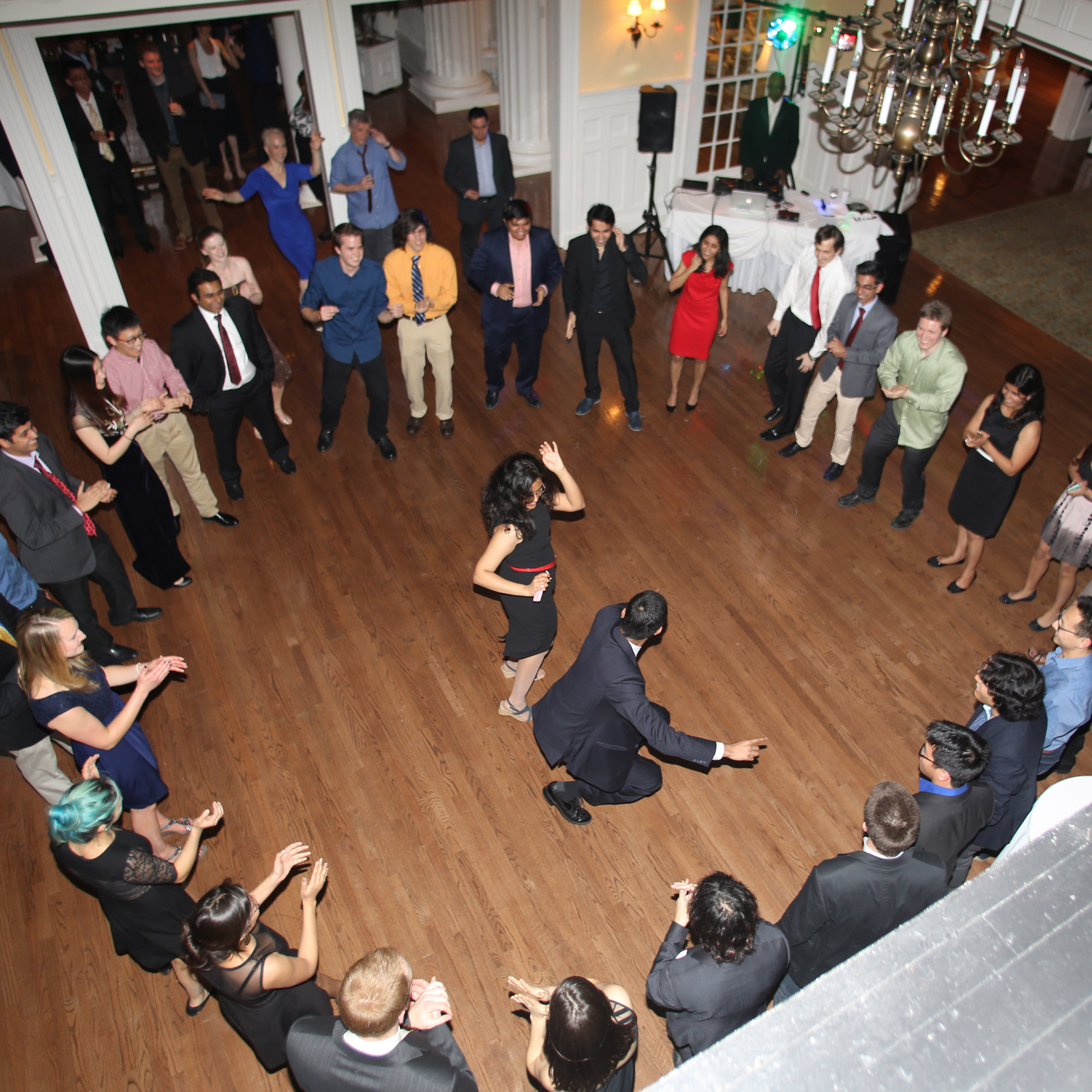Carnegie Mellon University
Improving Multirotor Trajectory Tracking Performance using Learned Dynamics Models
Abstract: Multirotors and other aerial vehicles have recently seen a surge in popularity, partly due to a rise in industrial applications such as inspection, surveillance, exploration, package delivery, cinematography, and others. Crucial to multirotors' successes in these applications, and enabling their suitability for other applications, is the ability to accurately track trajectories at high speed [...]
Carnegie Mellon University
Learning to Align without Geometric Supervision
Abstract: Extracting geometric information from image data is a highly nonlinear problem that exhibits in a number of visual recognition tasks such as object localization, facial landmark tracking and human pose estimation. Successful alignment across image data often serves as a crucial component in making them possible. In this talk, I will present how one [...]
Carnegie Mellon University
Hybrid Soft Sensing in Robotic Systems
Abstract: The increasing prevalence of wearable technology in our daily lives has created a demand for safe and robust sensing skins. Largely inspired by human skin, the ultimate goal of electronic skins is to measure diverse sensory information, conform to surfaces, and avoid interfering with the natural mechanics of the host or user. These demands [...]
Carnegie Mellon University
Automatic Real-time Anomaly Detection for Autonomous Aerial Vehicles
Abstract: The recent incidents with Boeing 737 Max 8 aircraft have raised concerns about the safety and reliability of autopilots and autonomous operations. There is a growing need for methods to monitor the status of aircraft and report any faults and anomalies to the human pilot or to the autopilot to deal with the emergency [...]
Creative Robots with Deep Reinforcement Learning
Recent advances in Deep Reinforcement Learning (DRL) algorithms provided us with the possibility of adding intelligence to robots. Recently, we have been applying a variety of DRL algorithms to the tasks that modern control theory may not be able to solve. We observed intriguing creativity from robots when they are constrained in reaching a certain [...]
2019 Robotics Institute Semi-formal
By invitation only: The 2019 Robotics Institute Semi-formal Robotics Institute members and a guest are invited to join us for our annual semi-formal! Join us for an evening of music, fun, food and friends! Food and beverage will include: hot hors d’oeuvres, stations for carving, pasta, fruit, cheese, coffee and dessert and hosted non-alcoholic beverages. [...]
Teruko Yata Memorial Lecture – Understanding Human Behavior for Robotic Assistance and Collaboration
Speaker: Henny Admoni, Assistant Professor, Robotics Institute Carnegie Mellon University Title: Understanding Human Behavior for Robotic Assistance and Collaboration . Human-robot collaboration has the potential to transform the way people work and live. Researchers are currently developing robots that assist people in public spaces, on the job, and in their homes. To be effective assistants, these robots [...]
2019 RI National Robotics Week Celebration
The Robotics Institute will celebrate the tenth annual National Robotics Week on April 11 & 12 with lectures, project demonstrations, the annual Mobot (mobile robot) races, and a reception for RI affiliated people. REGISTRATION IS NOW OPEN REGISTER HERE If you have any specific questions about the National Robotics Week open house please email Debbie [...]
Carnegie Mellon University
Towards Safe and Robust Behavior Mixing for Multi-Robot Systems
Abstract: Multi-robot systems have been widely studied for extending its capability of accomplishing complex tasks through cooperative behaviors. In large-scale multi-robot behavior mixing, the heterogeneous robotic team executes simultaneously multiple behaviors or sequences of behaviors with various task-prescribed controllers in real time to increase efficiency in parallel tasks. Key to the success of behavior mixing [...]
Carnegie Mellon University
Design and Evaluation of Robust Control Methods for Robotic Transfemoral Prostheses
Abstract: Amputees face a number of gait deficits due to a lack of control and power from their mechanically-passive prostheses. Of crucial importance among these deficits are those related to balance, as falls and a fear of falling can cause an avoidance of activity that leads to further debilitation. In this thesis, we investigate the [...]
Carnegie Mellon University
Vigneshram Krishnamoorthy – MSR Thesis Talk
Title: A Computational Framework for Norm-Aware Reasoning in Autonomous Systems Abstract: Autonomous agents are increasingly deployed in complex social environments where they not only have to reason about their domain goals but also about norms that can impose constraints on task performance. Integrating task planning with norm aware reasoning is a challenging problem due to [...]
Carnegie Mellon University
Deep Reinforcement Learning Representations for Robotics
Abstract: A long standing goal of robotics research is to create algorithms that can automatically learn complex control strategies from scratch. Part of the challenge of applying such algorithms to robots is the choice of representation. While RL algorithms have been successfully applied to many robotics tasks such as Ball-in-a-Cup and various RoboCup soccer domains, [...]
Carnegie Mellon University
Speeding Up Search-based Motion Planning Via Conservative Heuristics
Abstract: Weighted A* search (wA*) is a popular tool for robot motion-planning. Its efficiency however depends on the quality of heuristic function used. In fact, it has been shown that the correlation between the heuristic function and the true cost-to-goal significantly affects the efficiency of the search, when used with a large weight on the [...]
Carnegie Mellon University
Learning multi-robot behaviors for online control
Abstract: Finding dynamically feasible and safe global plans for multi-agent teams in real world applications is enormously difficult because the decision branching factor, when considering all possible interactions across agents and an environment, is usually intractable. Humans, however, have great success in the multi-agent planning domain by using behaviors: practiced, coordinated responses for groups of [...]
Carnegie Mellon University
Routing for Persistent Exploration in Dynamic Environments with Teams of Energy-Constrained Robots
Abstract: In domains requiring effective situational awareness with limited resources, prioritizing focus is critical. Search and rescue tasks require fast identification of safe avenues for rescuers to traverse the area. Inspection tasks must realize trends over long durations to identify issues caused by the confluence of high-stress modes that compound into catastrophic failure. Deploying robots [...]
Carnegie Mellon University
Intra-Robot Replanning and Learning for Multi-Robot Teams in Complex Dynamic Domains
Abstract: In complex dynamic multi-robot domains, there is a set of individual robots that must coordinate together through a centralized planner that inevitably makes assumptions based on a model of the environment and the actions of the individual. Eventually, the individuals may encounter failures, because the centralized planner’s models of the states and actions are [...]














